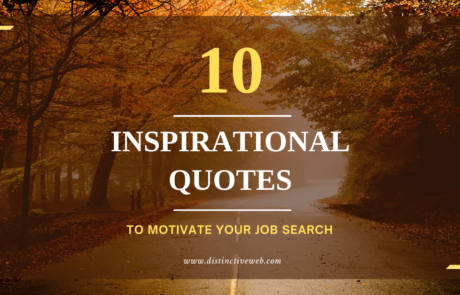
Whether you’re looking for a new job or a different one, for part-time employment, extra income or a complete career makeover, job searching is serious business, one that requires diligence, focus, creativity, drive, ingenuity and imagination.
It also requires you to be honest with yourself. Honest about your work habits, your strengths and weaknesses, your desire and your ability to accept things beyond your control.
You’ve got to be able to adopt new strategies and adapt to changes in circumstances. Most importantly, effective job searching requires that you utilize all resources available to you, big and small.
One often overlooked and sometimes looked-down-upon tool you can use in any job search is an “old school” job fair. Yes, a job fair.
We all know what they are and many of us have avoided them like the plague in the past, put off by the discouraging volume of job seekers just like us all scurrying about to get as much information as possible while, at the same time, attempting to distribute as many resumes as possible and make a lasting impression, memorable for all the right reasons.
We do everything we can to ensure that the contact’s recollection is strong enough that they’ll usher our application/resume to the desk of a decision maker. And everyone at the fair is on the same ride, so to speak. It doesn’t have to be that way, however.
The resurgence in job fairs as a viable option provides you the opportunity to connect in person with employers utilizing such fairs to meet their staffing needs.
There are some simple steps that, if followed, can bolster your job searching efforts by maximizing the benefits offered when attending a job fair, including:
-
- Survey the landscape. Do your online research to determine what, where, when and who. Unless you’ve got time to burn or want to engage in as many job searching activities as possible, you should assess the relevance of the fair to your career focus.
But don’t ignore the possibility that companies/organizations aren’t merely looking for those to whom the job fair is primarily targeted.
-
- Plan the plan. Once you’ve identified the attendee companies, research them so that you know as much as is publicly available, thereby permitting you to have an informed, intelligent discussion with the company rep. Show what you know.
-
- Dress for success. We really don’t need to expand on this, do we? Didn’t think so.
-
- Put ‘er there! Don’t underestimate the power of a good handshake and sincere eye contact.
-
- Going up…. Have your elevator speech ready. Any conversation you have at a job fair is, in essence, an impromptu interview. Market yourself. Be composed, confident but professional and humble.
-
- Being organized demonstrates competence. Have resumes, pen, notepads, business cards (if appropriate) with you. Be prepared to fill out an application on the spot.
If you don’t, it’s likely the people standing behind you, to your left and to your right will and, in so doing, they’ll have established a competitive advantage over you. Have employment history and reference contact information at your fingertips.
-
- This ain’t no party, this ain’t no disco…. A job fair is not an industry mixer. You may not be sitting across the desk from an interviewer but you are being judged nevertheless.
Bring your “A” game. As the saying goes, you never get a second chance to make a first impression.
-
- Don’t expect a job but do expect to build your network. In fact, that should probably be your primary focus when “job searching” at a job fair. Effective networking is essential to any job searching effort and making a good impression is key to effective networking.









